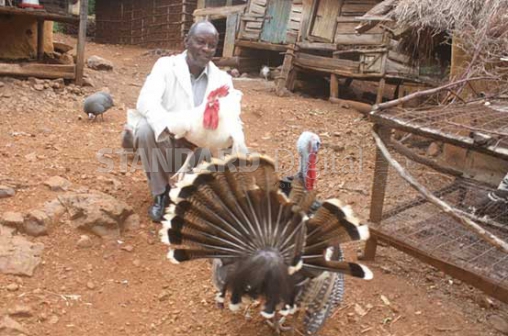×
The Standard e-Paper
Join Thousands Daily

When Smart Harvest visited Francis Sunda at his farm in Bomwancha village Suneka Kisii County, we found him ‘bonding’ with his poultry.
“These birds are like my friends. We get along very well. I know when they are hungry, when they are about to fall sick or when they are unwell. I can preempt their every move. They rarely get sick because I take good care of them,” Mzee Sunda says.